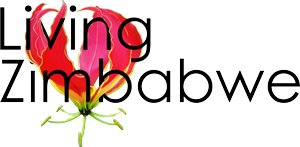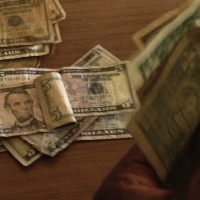According to a recent report from an international news network, money laundering in Zimbabwe takes on a different meaning because it literally means laundering money with soap and water versus what the phrase means in the traditional sense. For those who have cash in hand, the chances of them being in possession of a clean and crisp US dollar note are not that high. What you are likely to find is a dirty, flimsy, tattered and smelly note.
The “dirty money” has become the norm but you will find that on occasion you may come across someone not willing to accept your money when paying them for a product or service. This situation can make things difficult for consumers because who would want to end up with a bunch of notes that are not being accepted by anyone?
In a “normal” economy, notes that have passed their “use by” date are replaced accordingly. In the case of US dollars being used outside of the United States, this would mean a trip back to the Federal Reserve to be destroyed and replaced with brand spanking new notes. But, our economy isn’t quite “normal” and citizens are apparently taking measures into their own hands and are cleaning the money as official channels aren’t doing this for them.
Another reason for the state of the bills that are in circulation may be that a lot of people have lost faith in the formal banking sector. As Finance Minister Patrick Chinamasa has said, traders “were keeping their money under the pillow” and that it is a market that he intended to tap and bring the value back to the formal sector.
With the current situation in the banking sector where some depositors have to queue for extended periods of time to make a withdrawal, can you blame people for not wanting to bank their money?
With all of the above issues in mind, enter Zimbabwe’s mobile operators into the picture. Econet has been working hard at pushing the mobile money transfer product, EcoCash. Telecel has also joined the fray with a similar product offering to rival EcoCash. Given the current liquidity situation these products could be a God send because of the ability to transact electronically and negating the need to go to a bank. The success that these products realise all depends on public update of these offerings.
As far as now and cash goes, if the situation does not improve, Zimbabwe will have yet another challenge to tackle. The Reserve Bank has added even more currencies to an already multi-currency economy for one reason or another. But, is adding more currencies to the mix the way to go in respect to addressing this issue? We could end up with more dirty notes of all sorts of different currencies and denominations that can’t be used anywhere else but in Zimbabwe.
What end in sight do you see for Zimbabwe’s multi-currency economy that is filled with dirty money?


My mother caught chicken pox from a filthy money tendered to her by a man with shingles. It makes me nauseated whenever I think about it. Sies, man!!